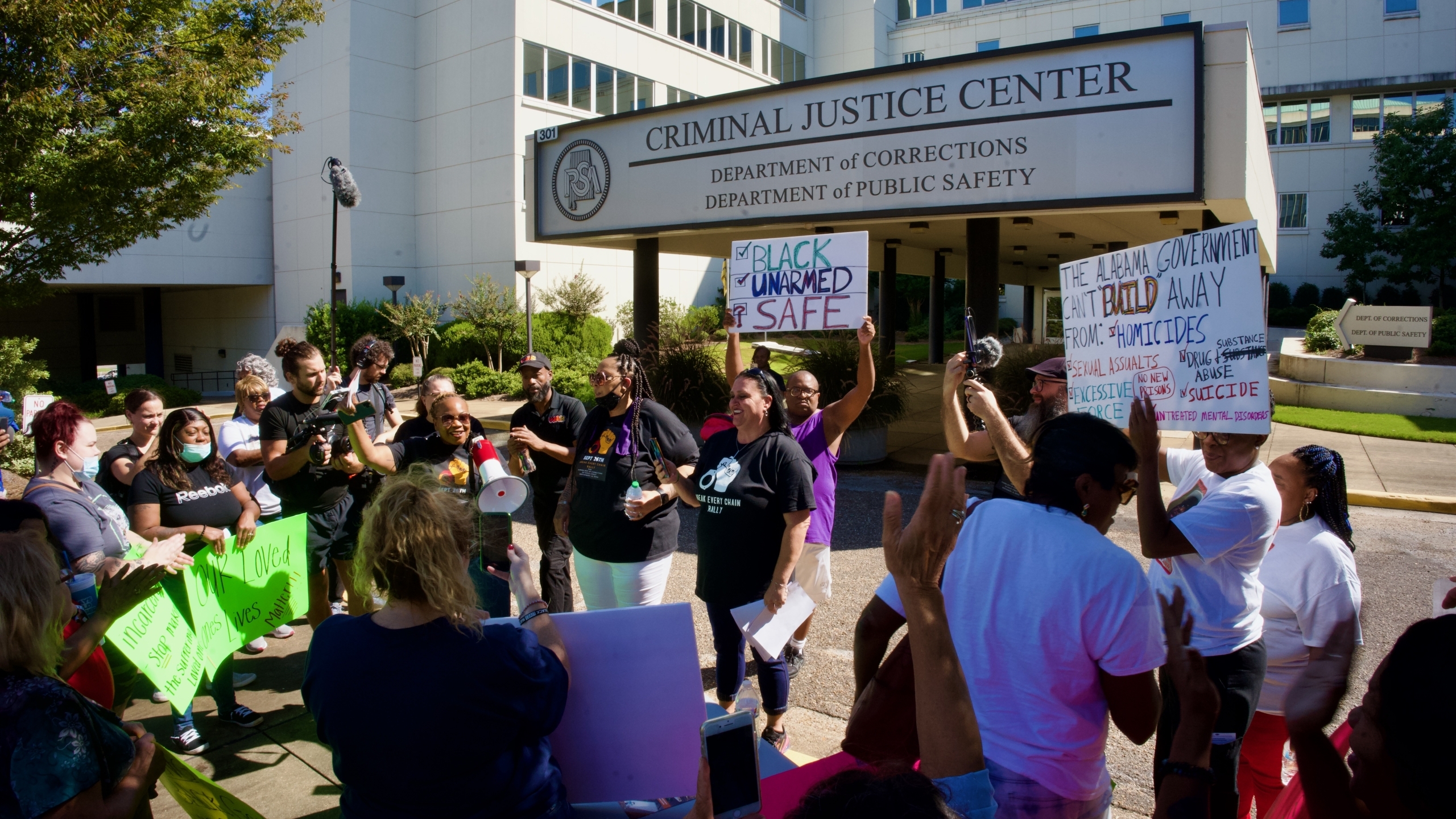The general strike and protest among incarcerated workers in state prisons has begun to subside as more incarcerated individuals return to their inside jobs “to ensure that ADOC does not continue to target the most vulnerable in our population,” according to a statement from inside organizers obtained by APR.
In the statement from organizing members, the group said that this pivot away from a unified strike and protest is “by no means a white flag,” and that striking individuals will continue to “escalate our strike, peacefully,” until demands laid forward by incarcerated individuals are heard.
“We are still demanding our concerns be heard before our Legislators and other elected officials,” the statement reads. “We also demand that our outside representatives be given a platform to be our voice and the public hear our arguments.”
The strike represents perhaps the largest collective protest and strike among Alabama’s incarcerated population in the state’s history and has affected every major correctional facility in the state. At the beginning of the strike’s third week, the Alabama Department of Corrections confirmed that five of the state’s 14 major facilities were still experiencing work stoppages.
Throughout its duration, incarcerated individuals have alleged repeated and constant retaliation from the ADOC, including the use of starvation, being forced to work under threat from correctional officials, and placement in solitary confinement for participation in the strike and protest.
“We have been starved, placed into solitary confinement and suicide cells as retaliation, and forced into dangerous situations as ADOC tries to turn us against each other,” organizers said. “We will not relent under these retaliatory tactics. Our brothers, particularly those with health conditions, addiction, and mental health challenges, have faced challenges not only to their psychological well-being but also their very lives.”
On Sept. 30, a group of incarcerated individuals with medical conditions that require consistent foot intake filed an emergency Motion to Intervene in the U.S. Department of Justice’s ongoing lawsuit against the state and the ADOC, arguing that the alleged retaliatory tactics during the strike committed by the Department of Corrections warranted immediate intervention from the federal government.
An amended motion filed last week saw more incarcerated individuals, now 37 in total, joining in the motion, with each arguing that the conditions within correctional facilities “have worsened markedly” since the original filing date of the DOJ’s lawsuit.
In response to the Motion to Intervene filed by the group of incarcerated individuals, Justice Department attorneys in the case asked the U.S. District Court to deny the motion, arguing that intervention would be “untimely at this stage of the proceedings as it would disrupt the ongoing discovery to incorporate the additional claims” and that the claims brought forward by the group, which include adequate meals and medical care, are “claims that are not at issue” in the Government’s case.
“The United States case does not address the adequacy of food service or medical care,” Attorneys wrote in a response filed with the U.S. District Court for the Northern District of Alabama on Friday. “The distinct questions of law and fact raised by Applicants’ claims demonstrate that Applicants’ particularized interests are not present in the United States litigation, making intervention inappropriate.”



















































